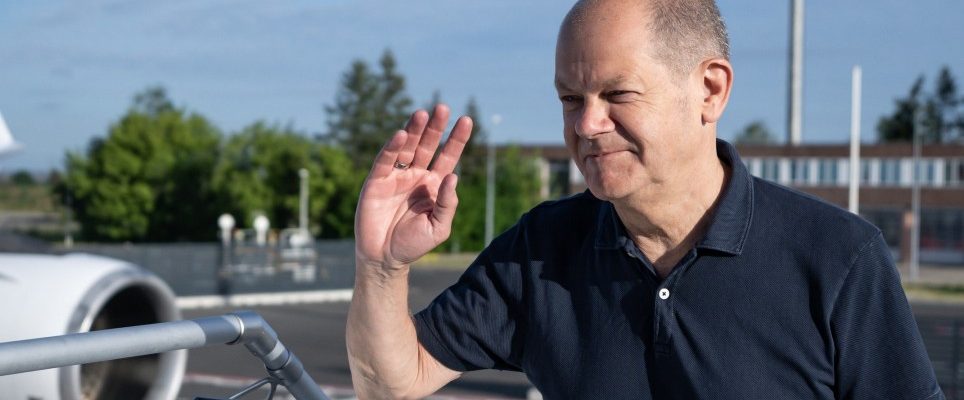The diplomat with a special place in Olaf Scholz’s heart is Kenyan and his name is Martin Kimani. Again and again the Federal Chancellor comes back to a memorable performance by Kimani to speak. As Kenya’s representative at the United Nations, Kimani condemned Russia’s threats at a UN Security Council meeting shortly before the Russian invasion of Ukraine and warned of the “ashes of dead empires.”
From Scholz’s point of view, the words of the Kenyan ambassador to the UN were so significant because they contradicted the statement by the Moscow ruler Vladimir Putin that only the “collective West” had a problem with the Russian war of aggression against Ukraine. It so happens that Scholz is also visiting Kenya on the second trip to Africa during his term of office this Friday and Saturday. Germany connects Kenya with a “parallel view of the international order,” the chancellor’s office praised before departure.
When Scholz is on the road, the war and its consequences are still traveling with him, more than a year after the Russian attack. Especially since in many places, especially in Africa, the effects of the war can be felt through increased food and energy prices. That also shaped the program for Scholz’ first stop on Thursday.
In the Ethiopian capital of Addis Ababa, the chancellor was expected at the African Union (AU), the association of 55 states that aims to promote “unity and solidarity” on the continent. However, the position of the AU on the war against Ukraine is anything but clear. Russia can build on old Soviet-era connections in Africa; Propaganda from Moscow is finding fertile ground in many places. Scholz will, said an adviser, take the opportunity to clean up with the “gross nonsense” and the “totally factless claim” that Russia only reacted to NATO advancing on Ukrainian territory.
A main topic on Scholz’ trip is the situation in Sudan
When war is mentioned in Ethiopia, however, it is generally not meant in distant Europe. Up to 800,000 people have died in Ethiopia in the war over the Tigray region. It was only in November that the Ethiopian government and the Tigray People’s Liberation Front (TPLF) agreed on a lasting but not really stable ceasefire and a peace process.
Scholz therefore had an appointment in Addis Ababa not only with the Ethiopian leadership, but also with the interim head of government of the province of Tigray. He wants to use his talks with both sides “on the one hand to honor the successes and on the other hand to appeal to both to promote them further”. The situation in Sudan, where the parties to the conflict have just “in principle” agreed on a seven-day ceasefire, should also be a topic in Ethiopia and Kenya.
In Kenya, which the federal government classifies as a “democracy and values partner”, Scholz is primarily looking for good news. “It’s not trivial to say that elections work here as a mechanism for transferring power and that this has an impact beyond the country and into the region,” says one advisor.
No less important: Kenya is regarded as an African pioneer in climate protection. It generates 90 percent of its electricity from renewable energies. Scholz, who is accompanied by a business delegation, wants to visit the geothermal power plant in Olkaria on Saturday. It is the largest in Africa and, as Scholz enthuses, has significant potential for the production of green hydrogen.

